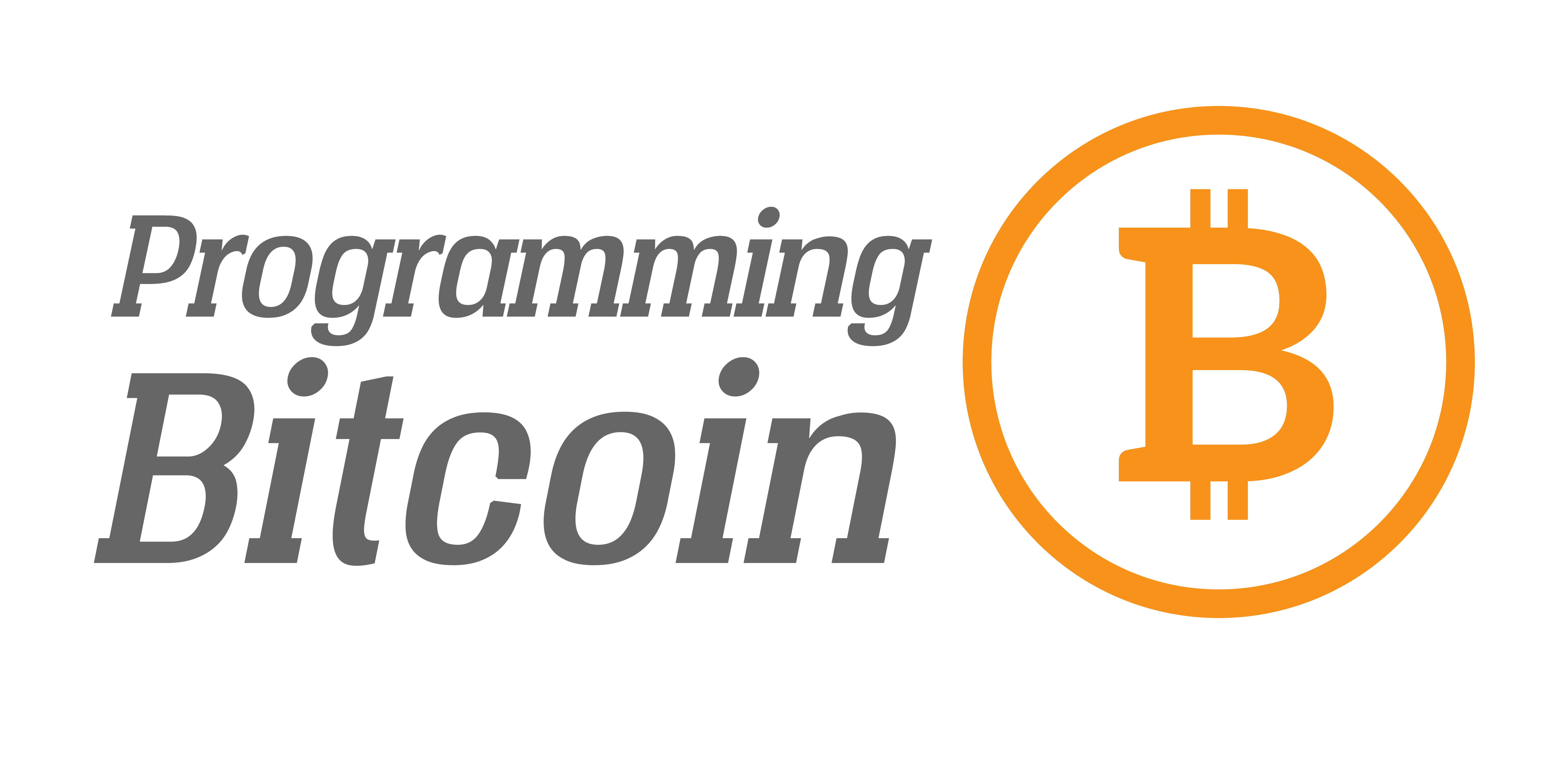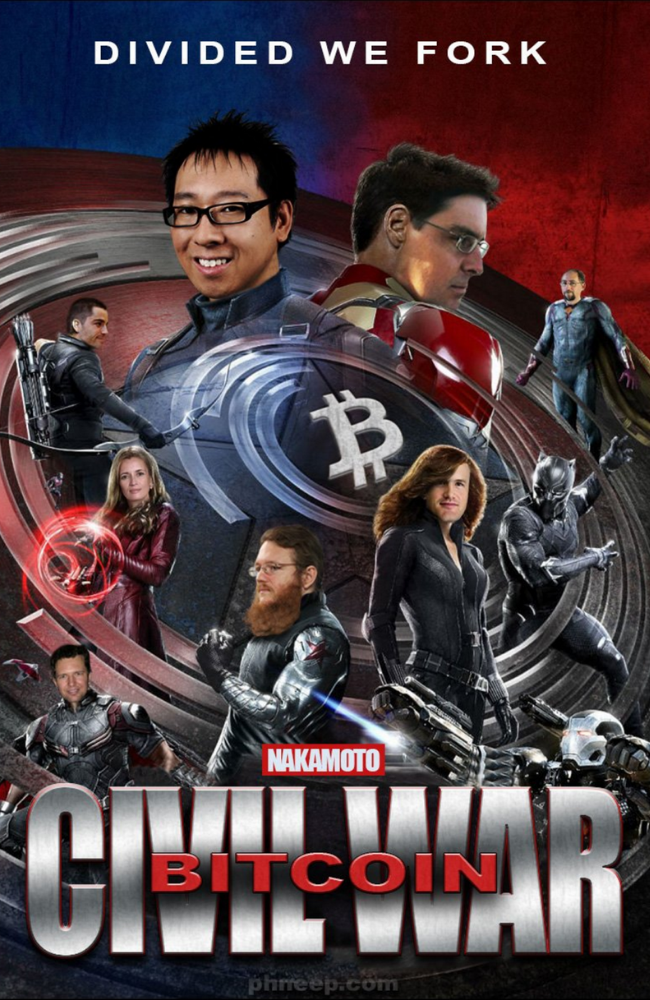Bitcoin Realism or: How I Learned to Stop Worrying and Love 1MB Blocks

If you’ve been paying attention to the Bitcoin community lately, you’d think we’re on the brink of war. There’s a lot of hostility between the Small and Big Block camps and proposals by each to undermine the other side seem to come up every week. In this article, I seek to calm the rhetoric down by presenting the case for Bitcoin Realism, or how staying with what we have is the best course of action.
Bitcoin Governance
The whole scaling debate/argument boils down to this. The Core developers and their supporters want to do A, some other people want to do B. How do you decide as a community to do A, B, both or neither? That’s where Bitcoin governance comes in.
You can look at the Bitcoin community as 3 branches of government, each with separate powers.
In Bitcoin, code is law, so the Developers are like the legislative branch. Miners execute the law (or not) through activating (or ignoring) the features developed, so they’re like the executive branch (note the veto power). Users ultimately have the power to walk away from Bitcoin at any time by selling their holdings or they can voice their enthusiasm by buying more. Users adjudicate new features through price signals. In that way Users are the judicial branch.
Consensus Governance
Notice that all three have a lot of influence over Bitcoin, but nobody has sole control. Developers develop features, but if the Miners don’t activate, the code they write is wasted. Miners can activate features, but if the Users all sell, they’re going to be out of business. Users can demand features, but without Developers and Miners, their demand is ignored.
Notice also, that if you’re missing any one of these groups, Bitcoin’s value proposition drops very quickly. Without Developers, you lose the ability to fix bugs and to make the code work. Without Miners, you lose the ability to secure the network. Without Users, Bitcoin is worthless. The altcoin graveyard is full of coins that lost one or more of these groups at first, but soon lost all three.
Given this, the current Bitcoin governance is best described as consensus. You can only get laws passed (that is, new code or features activated) if everyone agrees. As the scaling debate has continued, the ground has shifted more recently to complaints by both sides about how the governance model of Bitcoin is broken.
The Lunacy of Subverting Governance
Some on the Big Blocker side have suggested that they hard-fork to larger blocks to cut out the Core Developers. Some on the Small Blocker side have suggested that they do a User-Activated Soft Fork (UASF) to activate Segwit by cutting out uncooperative Miners. In both cases, the hope is that if enough Users are on their side of the resulting fork, the competing chain would either die or merge back due to economic incentives.
Notice that in both cases, what they’re really doing is subverting the consensus governance model to get the feature that they want. I believe this to be a huge mistake for three reasons.
Payback is a B*tch
First, you may get the feature you want now, but you’ve now changed the governance model which can be used against you the next time in the exact same way. This is short-term gain (getting the feature you want now) for enormous long-term loss (systemic protection).
Say cutting out uncooperative Miners works via a User-Activated Soft Fork (for the record, I don’t think it will, but say that it somehow does). Do you really think the Miners won’t notice and do another User-Activated Soft Fork to do something that you really don’t like? How about a government that wants to destroy Bitcoin, do you think they won’t notice this loophole that’s now been created?
Same thing with cutting out Developers via a Hard Fork to 2MB (again, I don’t think this would work, but say that it somehow does). Do you really think the Core Developers won’t notice and do some other Hard Fork that you’re completely opposed to? How about a malicious attacker, do you think they won’t notice that there’s now an attack vector via contentious hard fork?
Removing others’ rights to get what you want is short-sighted and a danger long-term. This is how a government that starts off with ideal civil liberties ends up a tyrannical mess. You would think the largely libertarian-leaning Bitcoin community would understand this, yet here we are, with each side trying to undercut the other.
The governance model protects the entire Bitcoin Network. If you subvert it anywhere, you’re setting up a trap for yourself that will come back to ensnare you eventually.
Innovation via Governance Sucks
Second, leaving innovation to a consensus governance process is really slow and inefficient.
Innovation requires a lot of trial and error. A consensus process tries to arrive at the answer before the first attempt. Innovation requires rapid iteration and market signals like prices. Consensus processes have one very slow iteration with no market signals. Innovation needs room to fail. Consensus processes minimize the possibility of any kind of failure. Innovation by a consensus process sucks because by definition, you have to get permission from everyone before you try. It’s design-by-committee at its worst.
Using the Bitcoin network to innovate when there’s a consensus process in place is about the least efficient, most error-prone way to create useful things. Government programs are mostly ineffective for this reason. You would think the largely libertarian-leaning Bitcoin community would understand this, yet here we are arguing about what new governance-sponsored feature to pass.
Innovation is best left to the market. Businesses should be providing what users want, not governance. If fees are high, someone can figure out a way to make them lower by making a business out of it. If they succeed, it’s good for Bitcoin and they make tons of money (isn’t capitalism great?). Where there are problems, there is opportunity and we should not be depriving entrepreneurs of this very fertile ground. This is how markets and technology move forward.
War Destroys
Third, any attempt to subvert consensus has a strong possibility of leading to war. In some ways, there’s already a cold war between the Small Blockers and Big Blockers. There are two forums, two Reddit communities and two implementations that act as echo chambers to enhance this effect. Any contentious change by one side to deprive the rights of the other will be seen as an act of war.
War will lead to an enormous destruction of value. There will be confusion about what Bitcoin is. There will be multiple coins. Bitcoin price will drop. Many Users will simply opt to sell and get out of the community. Bitcoin’s utility as a Store of Value will plummet. Bitcoin will not be very usable as a Medium of Exchange, at least until the war is over. War is an outcome from which Bitcoin may never recover.
Even if we recover, what you end up with is one or two coins that will then have authoritarian governance. Authoritarian governance isn’t bad, per se, but authoritarianism has more risk factors that reduce Bitcoin’s utility. There are already many other altcoins that have an authoritarian governance model (ahem, Ethereum) and is too much like fiat for Users like me.
Using war is about the most damaging way to get what you want. Real-life wars destroy value and are irrational for the same reason. You would think a libertarian-leaning community like Bitcoin would understand this, yet here we are with both sides saber rattling.
War should be avoided. The potential destruction of value is a risk not worth taking. Peace is what leads to prosperity.
Bitcoin Realism
Which brings me back to my position on this matter. I hope it’s clear to you by now that I believe the best thing for Bitcoin would be to not activate anything contentious. I call this position Bitcoin Realism because that’s the most realistic outcome of consensus governance. With that in mind, I present the Bitcoin Realism Manifesto:
Bitcoin Realism Manifesto
- Consensus is a feature, not a bug. There’s supposed to be a very high burden to change the law (code). Bitcoin’s consensus governance is there to protect the entire network. I believe that consensus will prevent Bitcoin from becoming centralized and in control by the few. I will work to protect Bitcoin’s consensus governance.
- Innovation should be left to the market. I believe that there are lots of entrepreneurs in this community that are looking for opportunities to make money by solving problems for people. I believe market solutions can kill the need to make contentious changes to Bitcoin itself. I will work to help Bitcoin’s market, not governance, innovate.
- War should be avoided. I believe a contentious fork of any kind will cause enormous destruction of value. I believe war will lead to authoritarian governance that lead to unacceptable risks. I will work to help the community see that war is irrational, contentious laws are unneeded and against their long-term self-interest.
Conclusion
If you’re in Bitcoin, you’re probably in it for the long-haul. Bitcoin Realism is an appeal to your long-term self-interest. Subverting governance is not the answer. Government interference is not the answer. War is not the answer. They all hold some appeal short-term, but are all destructive long-term.
Let’s work to stop the saber rattling, help the market solve problems and move on from these contentious changes.
Want to get curated Technical Bitcoin News? Sign up for the Bitcoin Tech Talk newsletter!


Comments are closed